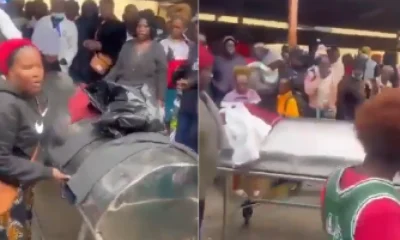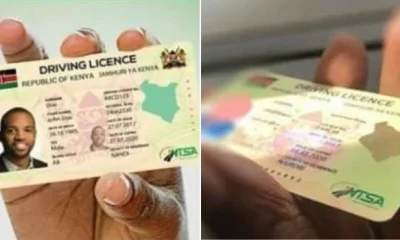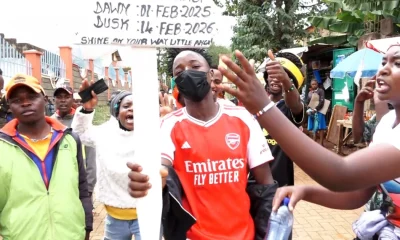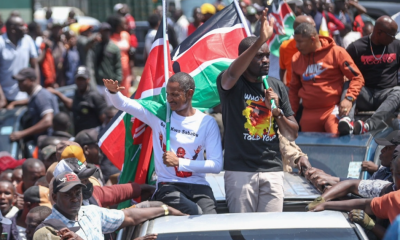News
‘Viumbe vya Ajabu’ Flood ICC twitter handle, Demanding Justice for Tanzanian protesters
Mounting forensic evidence of targeted shootings during Tanzania’s post-election crackdown has ignited a firestorm of international condemnation, with African leaders openly rejecting President Samia Suluhu Hassan’s landslide victory and thousands petitioning the International Criminal Court (ICC) to investigate for alleged crimes against humanity.
ALSO READ: “96% is Impossible in a Democracy”: Ruto Questions Tanzania Election in Al Jazeera Interview
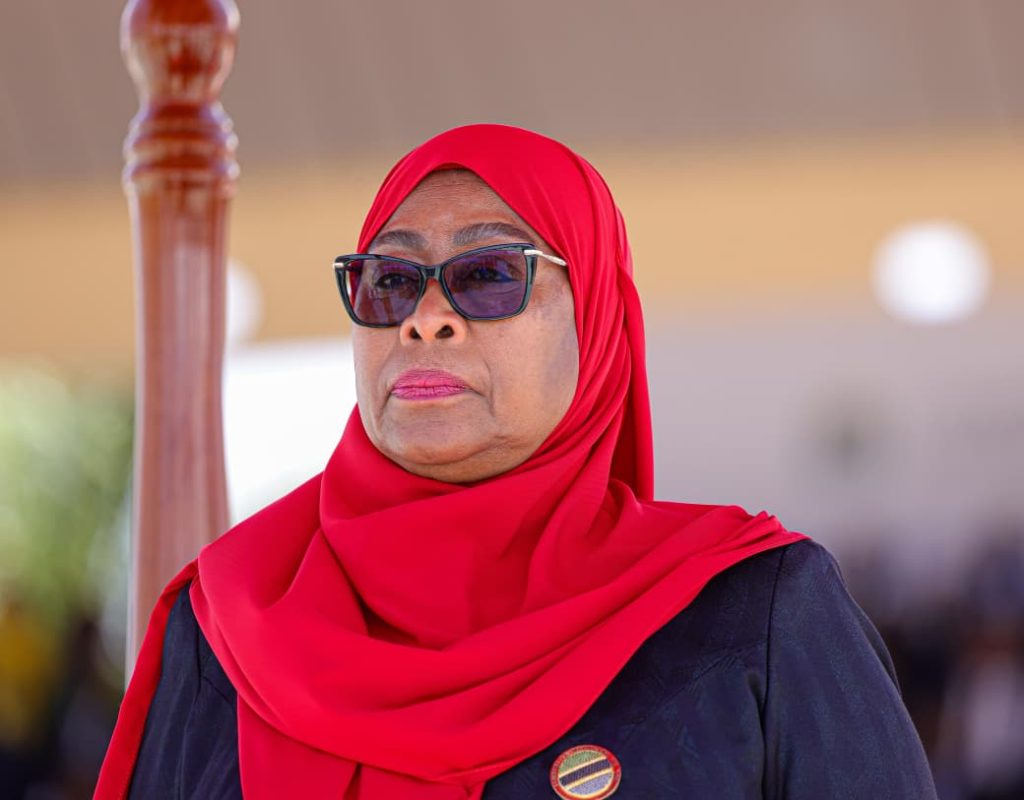
The crisis, stemming from the October 29 presidential election, has taken a dark turn with medical and human rights reports revealing a disturbing pattern: a majority of protesters killed by security forces sustained gunshot wounds to the head. This evidence, forensic experts say, points not to attempted crowd dispersal, but to a systematic intent to kill.
“When the majority of victims have gunshot wounds to the head, you’re not looking at crowd control—you’re looking at executions,” said a forensic pathologist who has reviewed medical records from the violence, speaking on condition of anonymity. “This suggests intent to kill, not to disperse.”
Investigators analyzing casualties from protests in Dar es Salaam, Arusha, and other major cities confirm that the prevalence of fatal head wounds is inconsistent with standard riot control procedures, which typically employ tear gas, water cannons, or rubber bullets. The findings have led observers to conclude that security forces executed a coordinated, lethal response to civil unrest.
Regional Legitimacy Crisis
The violence has been compounded by a deep crisis of legitimacy for President Suluhu’s government across the African continent. Her reported 96% vote share has been met with widespread skepticism and outright rejection from fellow leaders.
Former Kenyan President Uhuru Kenyatta has joined a growing chorus of dissent, echoing Kenyan President William Ruto’s past assertion that “96% is impossible in a democracy.” Former Botswana President Ian Khama has gone further, explicitly calling Suluhu’s presidency illegitimate. This collective condemnation represents an unprecedented diplomatic isolation for a sitting East African head of state.
Tensions were further inflamed when President Suluhu allegedly referred to Kenyans as “Viumbe vya Ajabu”—Swahili for “strange creatures”—in remarks that have sparked outrage and fueled a cross-border backlash.
Digital Mobilization for International Justice
In response, a groundswell of public pressure is building. Thousands, led primarily by Kenyan activists, have flooded the ICC’s official social media accounts with petitions demanding an investigation into the Tanzanian government. Hashtags such as #ArrestSuluhu and #TanzaniaKillings have trended across East Africa, marking an unprecedented digital mobilization for international justice.
The ICC, which holds jurisdiction over crimes against humanity, has not yet commented on the petitions.
Prominent Tanzanian activist Mange Kimambi, speaking from exile, has accused the government of orchestrating the violence to terrorize the population.
“This was not crowd control gone wrong—this was systematic murder designed to terrorize the population into silence,” Kimambi stated in a widely shared video message. “The government wanted to send a message: oppose us and die.”
Government Denials and Mounting Pressure
The Tanzanian government has categorically denied all allegations of targeted killings, maintaining that security forces acted with restraint against “criminal elements” infiltrating peaceful protests. State media has portrayed the demonstrations as foreign-backed attempts to destabilize the nation.
However, the government has yet to address the specific forensic evidence regarding the pattern of head wounds or justify the apparent use of live ammunition as a first resort.
Independent medical facilities and morgues have provided documentation supporting the high death toll, and while difficult to verify in full, photographs and video footage circulating online appear to corroborate accounts of security forces firing directly at protesters.
As the death toll climbs, the international community faces increasing pressure to act. The systematic nature of the violence and the alleged intent to kill could meet the legal threshold for ICC intervention. With Tanzania’s regional isolation deepening, the coming weeks will be critical in determining whether continental condemnation and citizen activism can translate into concrete international accountability.
Follow us on X
-
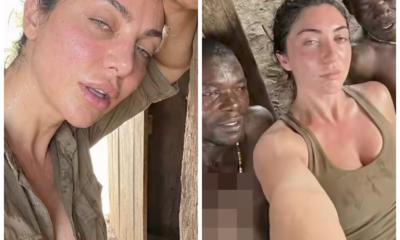
 Gossip6 days ago
Gossip6 days agoForeign Tourist’s Viral Uganda Video Ignites Social Media Frenzy Over “Intense Cultural Exchange”
-
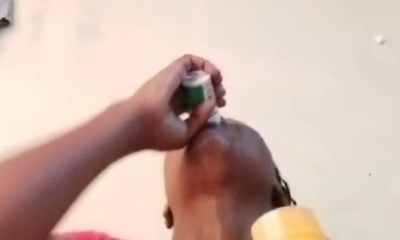
 Gossip1 week ago
Gossip1 week agoWoman Unalives Herself On Facebook Live As Viewers Begged Her To Stop
-

 Gossip7 days ago
Gossip7 days agoFake Model Casting Agency Under Fire After Disturbing Video Goes Viral
-
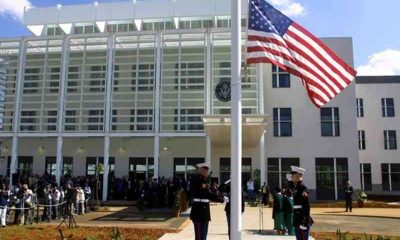
 Nairobi1 week ago
Nairobi1 week agoUS Embassy in Nairobi Closed Monday for President’s Day Federal Holiday
-
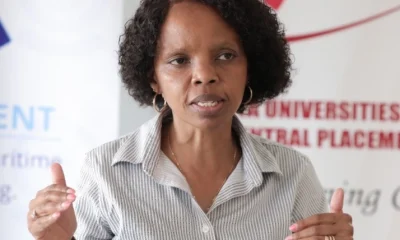
 Education7 days ago
Education7 days agoKUCCPS Releases Subject Requirements for All Degree Clusters: What Students Must Know Before Applying
-
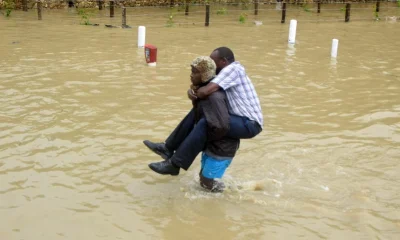
 Forecast1 week ago
Forecast1 week agoWill It Rain This Week? Heavy Downpours Expected in Central Kenya, Rift Valley and Coastal Regions
-
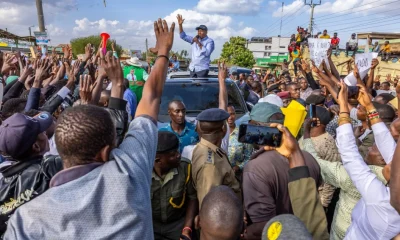
 News1 week ago
News1 week ago‘My Position is Safe’: DP Kindiki Shuts Down Political Speculation
-
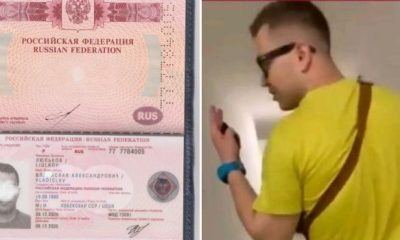
 Gossip4 days ago
Gossip4 days agoRussian Man’ Unmasked: Govt Officially Names Vladislav Luilkov in Non-Consensual Recording Scandal


